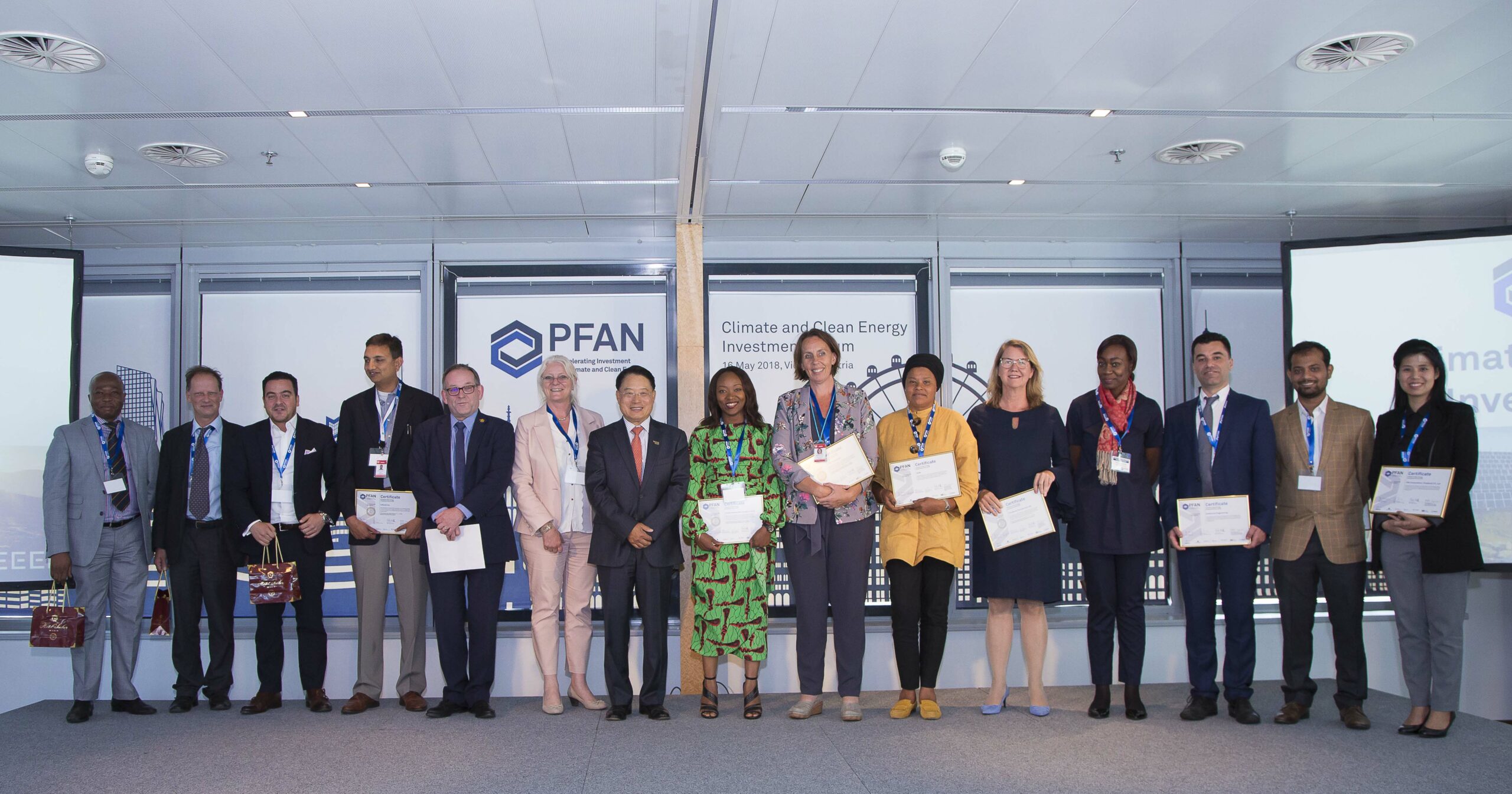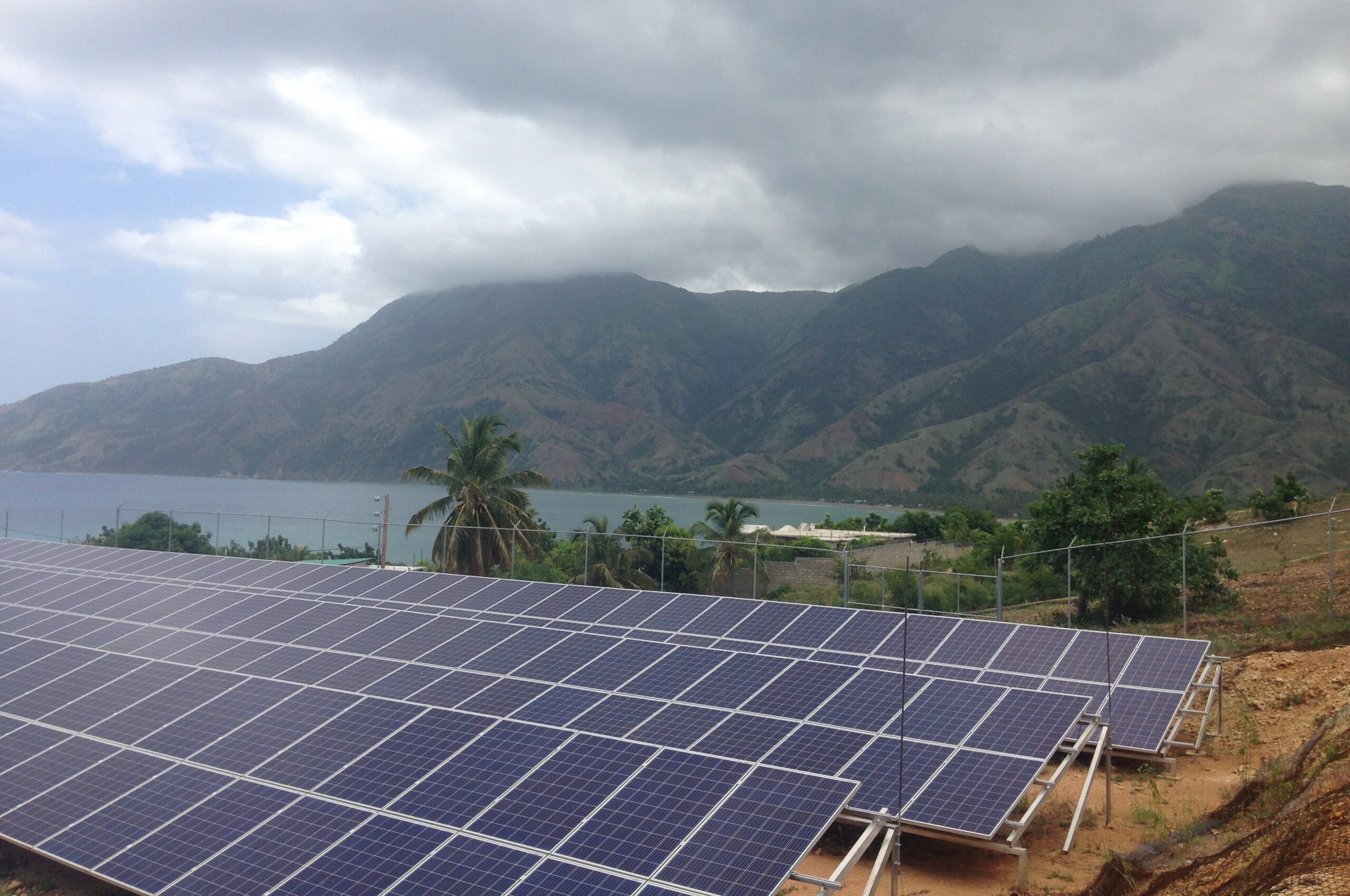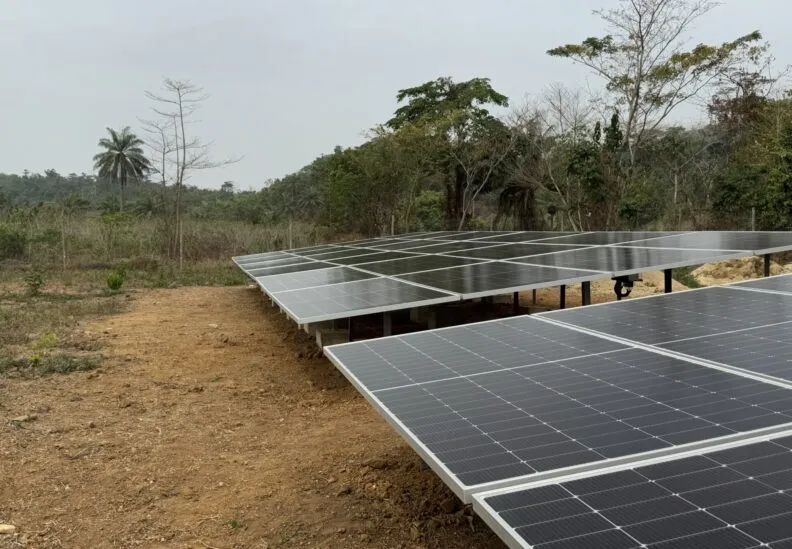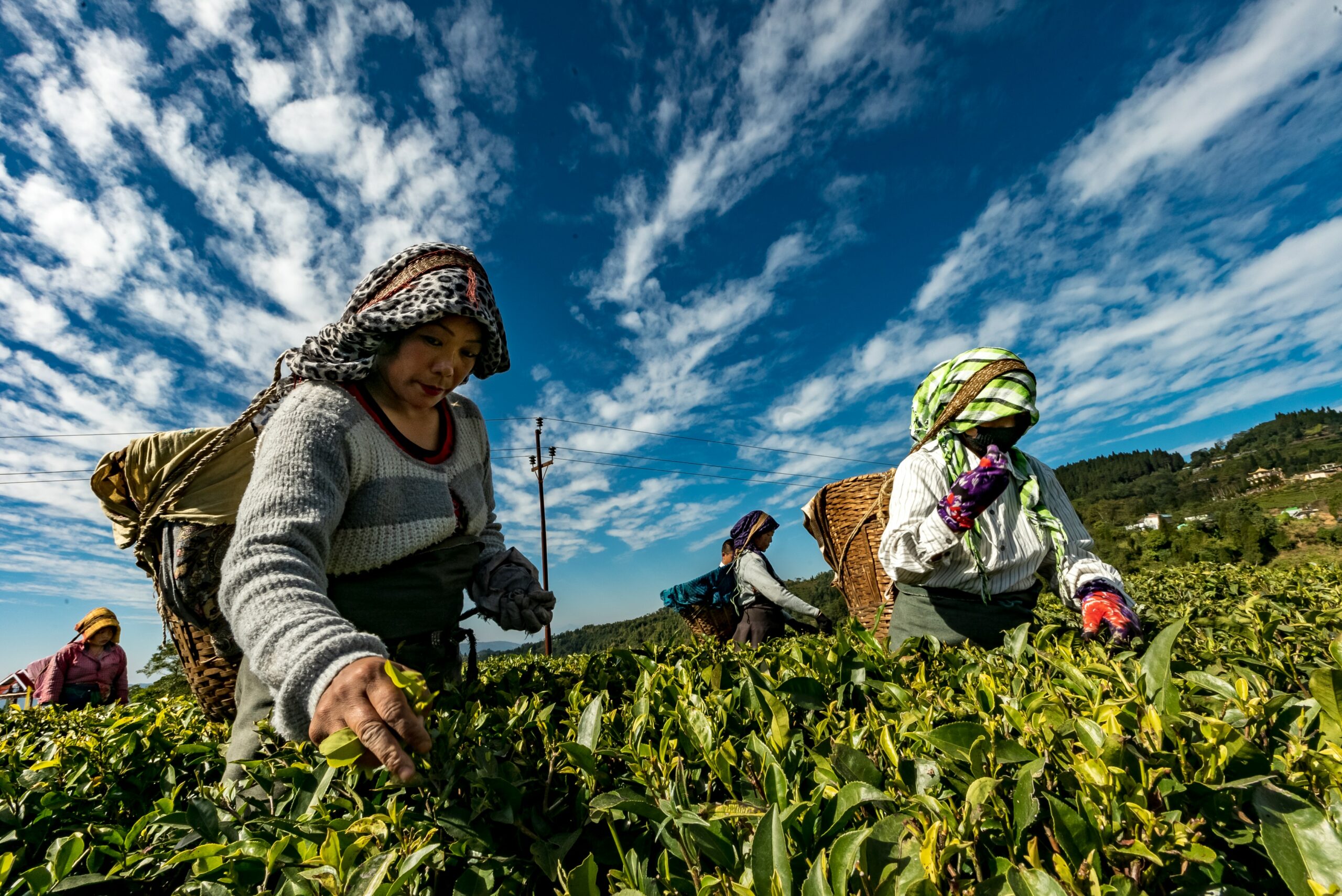
Eight clean energy entrepreneurs from West Africa and Asia had the opportunity to pitch their projects directly to investors today at the Private Financing Advisory Network’s (PFAN) second global Climate & Clean Energy Investment Forum.
The event commenced with remarks by Tareq Emtairah, Director of the Department of Energy at UNIDO, Peter Storey, Founder and Global Coordinator of PFAN and Bernadette Gierlinger, Austria’s Vice-Minister for Digital and Economic Affairs, followed by a keynote address by Bertrand Piccard, founder of the Solar Impulse Foundation. Then, a business plan competition saw four women entrepreneurs pitch their projects to be implemented in West Africa. The projects, with a total investment ask of over US$ 30 million, ranged from rural electrification in Senegal to a waste-to-energy solution for in the capital city of Sierra Leone.
The projects were selected for their economic viability and their environmental and societal benefits. They were deemed the best investment opportunities out of over 50 submissions to a 2017 call for proposals for women-led clean energy projects in West Africa. This call was supported by the UNFCCC Climate Technology Centre and Network (CTCN) and the ECOWAS Centre for Renewable Energy and Energy Efficiency (ECREEE) as part of the CTCN/ECOWAS Project on Mainstreaming Gender for a Climate-Resilient Energy System in West Africa.
A jury of high-level investors and climate financing experts chose VITALITE Senegal and Creeds Renewable Energy Ltd. as joint winners of the business plan competition. The runner-up was Masada Waste Transformers. VITALITE Senegal proposes to roll out its high-quality solar home systems and efficient appliances to off-grid areas across Senegal, while Creeds offers powerful solar power systems on a rent-to-own basis to SMEs in Nigeria.The Masada Waste Transformers pitched for US$ 25 million to build waste-to-energy biogas digesters in Freetown, Sierra Leone.
Commenting on the pitches seen, Winnie Odhiambo of the jury said: “We were really impressed with the calibre of companies presenting their products and services. It was striking that the companies we saw today are integrating geospatial data analysis and collecting consumer data on smallholder farmers which could enable lenders to make smart lending decisions or to price insurance premiums. This is data which no one else has. We encourage these businesses to take a good look at this data, which can tremendously increase their credibility and provide a very strong testament to the impact of their work.”
In the afternoon, four more entrepreneurs presented innovative technologies during an Investment Clinic. Their projects, ranging from a climate risk assessment app for Turkish farmers, to an innovation that uses residue heat from air conditioners to heat water, are strong contenders for early-stage funding and have been selected as promising opportunities for further development. They were originally part of UNIDO’s Global Cleantech Innovation Programme (GCIP) and are currently undergoing PFAN coaching. In a public vote, the audience at the Forum decided that the project pitched by Inficold represented the most exciting innovation. This business proposes to replace the diesel generators widely used as back up for India’s village-level milk coolers with ice batteries, which can be charged when grid power is available, and then provide cooling also during power cuts.
Since its founding in 2006, the Private Financing Advisory Network has supported over 600 clean energy and climate adaptation projects, of which around 250 have been presented at Forums held all over the world, and 102 have reached financial close. In total, PFAN has leveraged US$ 1.25 billion in investment, which has been used to install 802 MW of clean energy capacity, mitigating or avoiding 3.3 million tonnes of greenhouse gas emissions annually.
PFAN is hosted by the United Nations Industrial Development Organization (UNIDO) and the Renewable Energy and Energy Efficiency Partnership (REEEP). This Climate & Clean Energy Investment Forum was held in conjunction with the Vienna Energy Forum Special Session 2018.


